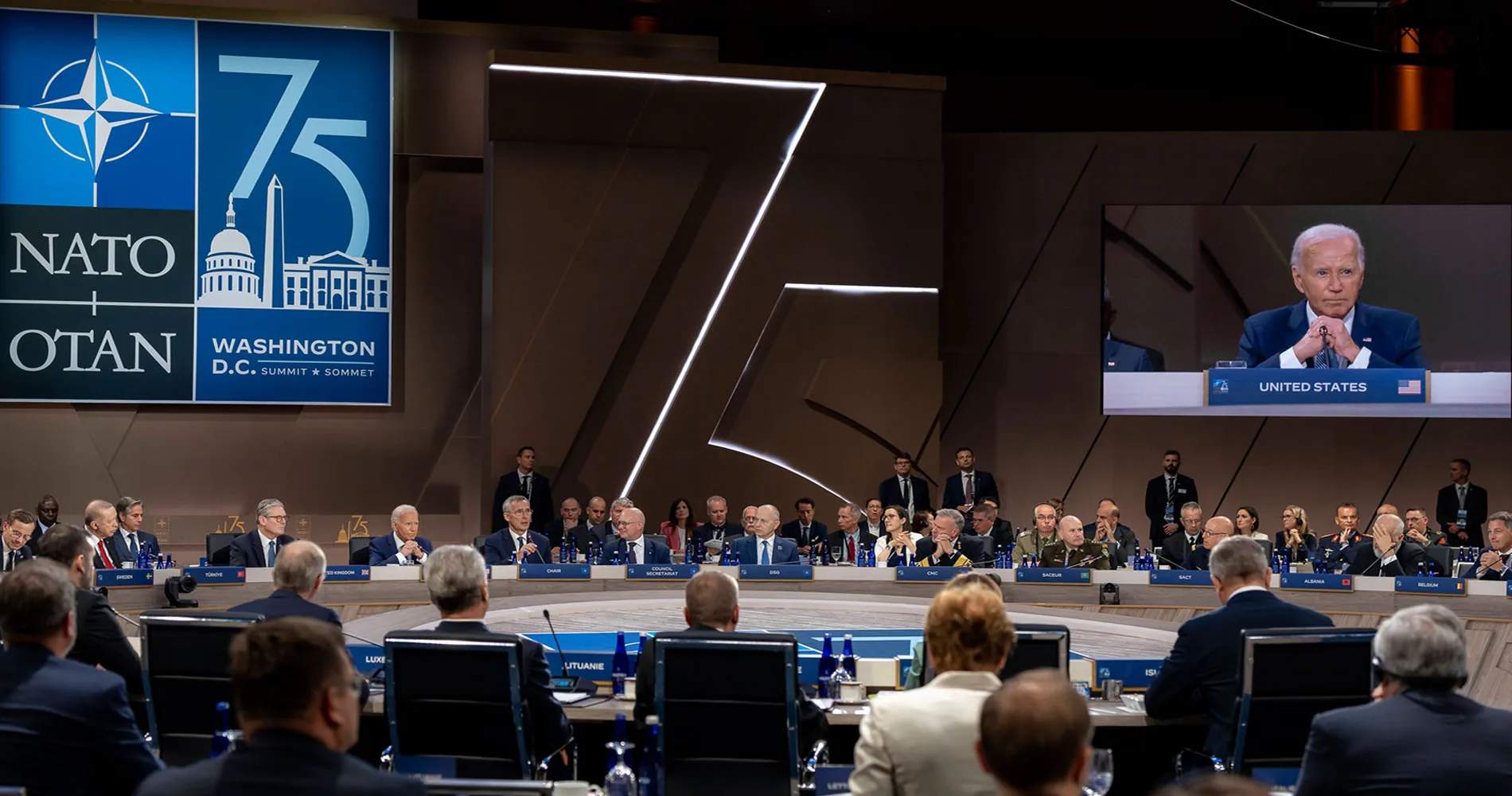A recent report has found that the US military is unprepared to fight a major war should one break out. Mismanagement and overly-cautious development have hindered the American military since the end of the Cold War. As the wars in Ukraine and Gaza continue to escalate, the US and its allies should rightfully be worried.
Reed McIntire
23 September 2024
Chinese version | French version | German version | Spanish version | Russian version
The Commission on the National Defense Strategy (NDS) has found in its 2024 report that the United States is completely unprepared if a major war were to break out, shattering perceptions on American military preparedness. The report comes amid rapidly increasing tensions between the US and its rivals, Russia and China.
Created in 2022, the Commission on the National Defense Strategy is an independent body which assesses the overall readiness and capabilities of the American military. The commission’s findings since then have determined that the United States was last prepared to fight a major conflict at the end of the Cold War in 1990 but has since then lost this capability.
The report outlines that while Russia remains a persistent threat to the US and its allies, China has rapidly become the largest concern for American defense. The Commission states that the Chinese military is likely outpacing the US, especially in regards to presence in the Pacific, thanks to two decades of military investment by the Chinese government. A key element of the Chinese strategy has been constructing islands in the South China Sea out of former coral reefs. While the US navy remains a permanent fixture in the region, these islands pose a newfound threat to American security and strategy.
Furthermore, both China and Russia have become known for their alternative approaches to diplomacy and security policy. China’s Belt-and-Road Initiative (BRI) has expanded its sphere of influence over large parts of the developing world, leading the country to be accused of neo-colonialism. Meanwhile Russia’s Wagner Group, officially independent but still with heavy government connections, is frequently hired by governments in the Global South. If the US does not match this, the report warns, Chinese and Russian influence will only grow larger.
This news is especially alarming for many countries in Europe which are members of the US-led NATO alliance. While all members of the alliance are supposed to share the burden of costs and supplies, in reality the US by far spends the most on its defense budget and military equipment. Lack of American preparedness could have dramatic implications for the alliance, as its most prominent member is now being called into question.
Numerous European nations have begun to rearm and modernize their militaries since the Russian invasion of Ukraine. Germany has notably undertaken a campaign of strengthening itself against the Russian threat. In 2023, German chancellor Olaf Shulz declared that his country will become the “backbone” of European defense and be capable of fighting a war itself in the near future. However, with the country dependent on Russian energy, this promise in unlikely to fulfilled any time soon.
The NDS Commission cites outdated management strategies and risk-averse development by the Department of Defense (DoD) as the largest causes for this recent lack of preparedness. However, according to the report, innovations like the Space Force or the Defense Innovation Unit still give some hope that out-of-the-box thinking is still possible in the DoD.
Moreover, the 2024 NDS Report suggests the US should incorporate “all elements of national power” to resolve this imbalance. This approach would “bring together diplomacy, economic investment, cybersecurity, trade, education, industrial capacity, technical innovation, civic engagement, and international cooperation.” Additionally, the report urges the US to strengthen its alliances across the world to curb Russian and Chinese influence.
Yet this realization might come too late. BRICS expanded its membership on 1 January 2024. The five newly admitted members, Egypt, Ethiopia, Iran, Saudi Arabia and the United Arab Emirates, together with the original member states, Brazil, Russia, India, China and South Africa, make BRICS a formidable force. The bloc now represents 45 percent of the world’s population and 36 percent of global GDP. The inclusion of Saudi Arabia is particularly worrisome for the Americans, as their Middle East strategy had previously heavily relied on their alliance with the kingdom. Although BRICS is primarily an economic bloc, originally created to counter the US-led international order, the incorporation of major powers in the Middle East is already shaping a new international order – including military alliances.
American diplomacy under President Biden and VP Harris is trying to patch up these military shortcomings. In April 2024, the US and Japan agreed to a new set of co-operative projects aimed at curbing China’s ambitions. These projects include development of missiles as well as joint manned moon landings. Additionally, the US, UK, and Australia form their own military alliance, AUKUS, which seeks to develop the security capabilities of all three nations, specifically in regards to China. President Trump is a supporter of AUKUS.
Revitalizing the American military could become a key part of the upcoming presidential election in November 2024. Part of former president Trump’s platform focuses around the military and making it “without question, the strongest in the world”. However, newfound Democratic Candidate and current Vice President Kamala Harris has yet to officially clarify her platform.
Nevertheless, the threat of nuclear escalation looms, with Israel threatening to use nuclear weapons against its archenemy Iran. The wars in Gaza and Ukraine have a real potential to engulf more countries, including the US.
While a major war between the United States and China or Russia is not imminent, a weakened American military could have profound effects on international dynamics. Whether or not the Americans or their allies will be able to rise to the challenge remains to be seen.







